Making our website Search Engine Optimized or SEO Optimized is a significant step to ranking in search engine results. If the website is optimized well for search engines and users, it will rank higher at the top position and drive incredible traffic for free.
While there are several SEO plugins in WordPress Repo, I started using the Rank Math SEO Plugin. Earlier I used Yoast SEO (Free); however, I feel Rank Math is more powerful with rich features that Yoast SEO (Premium) was offering at a cost.
Note: Please watch the video demo added below for thorough instruction and recommended settings.
In this article, we will learn how to install and set up WordPress SEO using Rank Math plugin. This plugin will help optimize the On-Page Search Engine Optimization within the WordPress site.
If you’re following us, this is the tenth article and video tutorial in the #WordPressBlog series. We earlier published about inserting Google Analytics tracking code in WordPress <head> tag within the header.php file.
Without further delay, let’s dive into WordPress SEO with the Rank Math plugin —
Installing WordPress SEO Plugin: Rank Math
Rank Math plugin is available for free in the WordPress Plugin directory. Follow the steps below to install and activate the WordPress SEO Rank Math.
- Login to your WordPress Dashboard
- Navigate to Add New under the Plugins menu
- Search and install the WordPress SEO Rank Math from the plugin directory
- Activate the plugin and get started with Wizard.
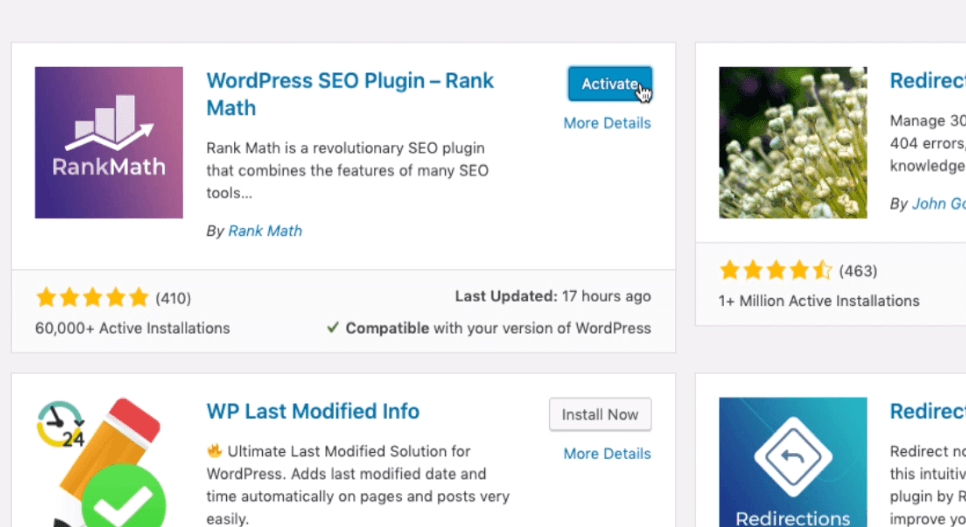
Once the plugin is activated, it will navigate you to Setup Wizard for Rank Math SEO. First, it will ask you to sign up for the Rank Math account; you can skip signing up. But, this will limit some of the features available in the plugin.
There will be two wizard setups:
- Basic Setup Wizard
- Advanced Setup Wizard
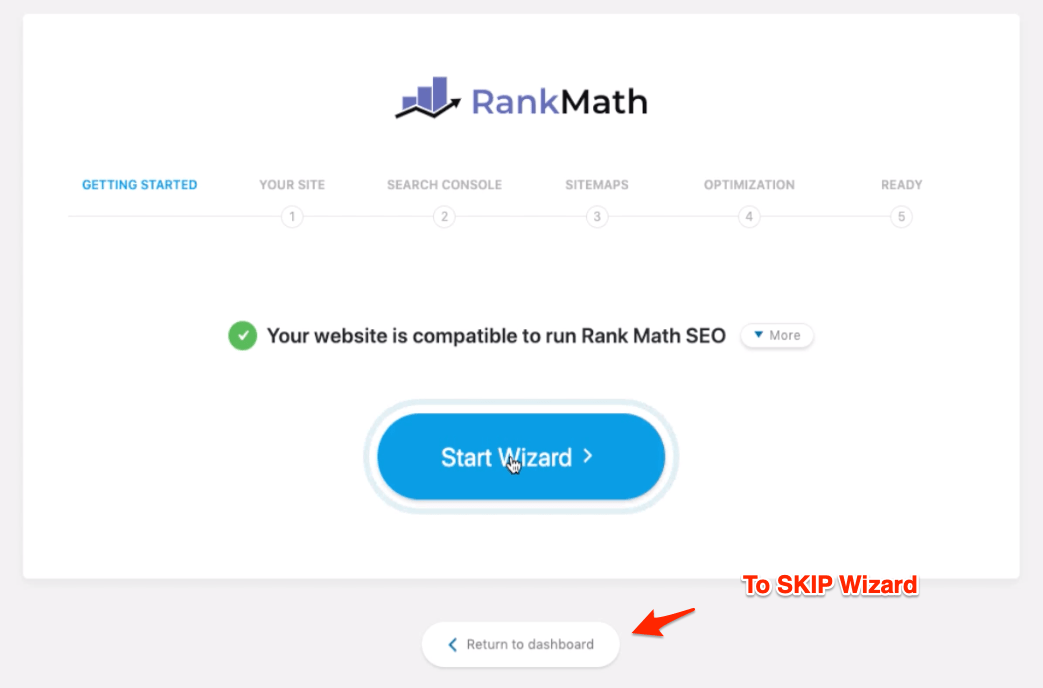
You must carefully follow the instructions and apply the desired settings per your needs. Do not worry; skip the Wizard and apply the SEO settings on the individual settings page.
Rank Math Dashboard
The Dashboard is the homepage within the Rank Math plugin settings. It helps enable and disable the modules and features with a toggle button. You can easily manage the entire WordPress SEO from the dashboard page.
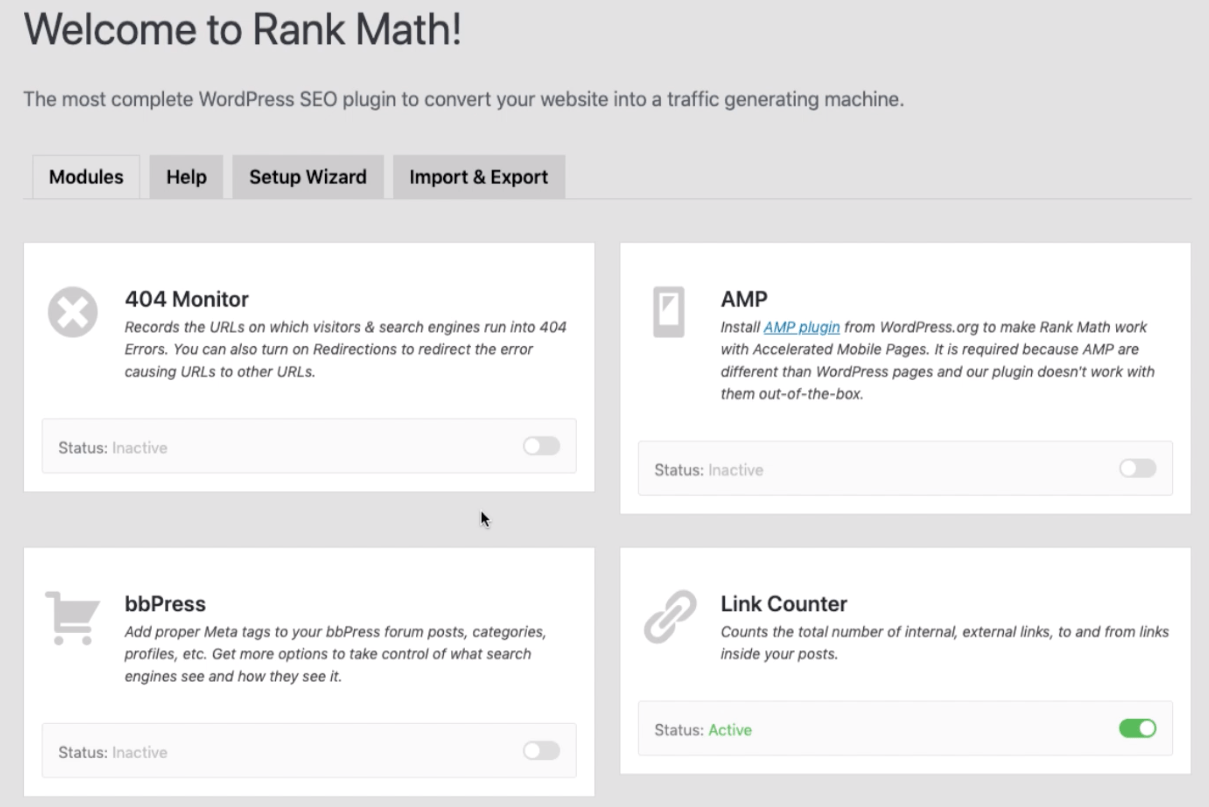
The Dashboard will also give you access to re-run the Setup Wizard if needed. You can also import/export and create a backup of your existing Rank Math plugin settings from the Dashboard.
You can refer to the below video demo for details about each module and its usage.
General Setting for ON-Page WordPress SEO
The General Settings tab helps in setting up the site-wide SEO feature. You can enable and disable certain features along with the basic settings.
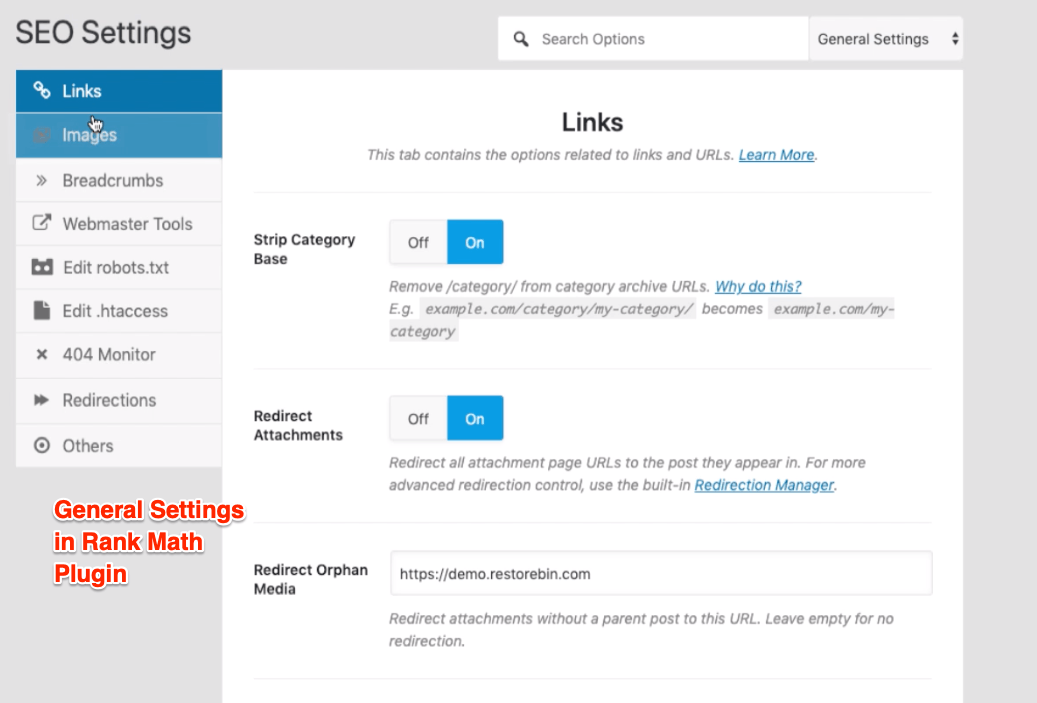
The General Settings help configure the Links, Images, Breadcrumbs, and robots.txt file along with rich features like 404 monitor and redirection (details further down).
It also helps authorize the Google and Bing Webmaster consoles if you’ve missed them in the Wizard setup.
Titles and Meta Settings
This is one of the critical parts of any ON-Page SEO for ranking the website. Titles and Metas can be configured globally, i.e., site-wide as well as at a granular level at individual post format types.
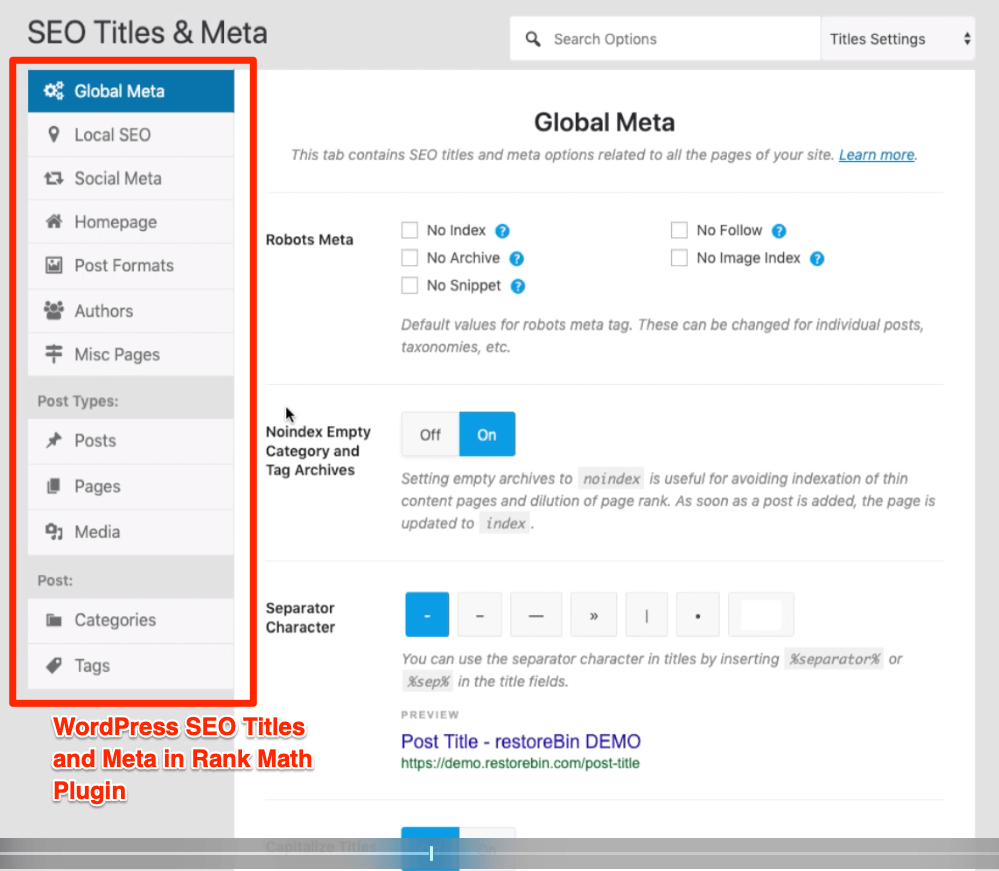
Titles — as the name suggested, basically the headline of any page or post, including the blog’s home and image title. This is the first thing that anyone searching online will recognize and read to understand what the content or article is all about.
You can customize the titles to include/exclude the site name, date/year, etc. You can even override the title settings using the Metabox available under each post or page you publish online.
Meta — this is the additional set of valuable information for the search engine to categorize and identify what content is all about. The meta includes the details like published date, modified date, category, author, rich schema type, etc.
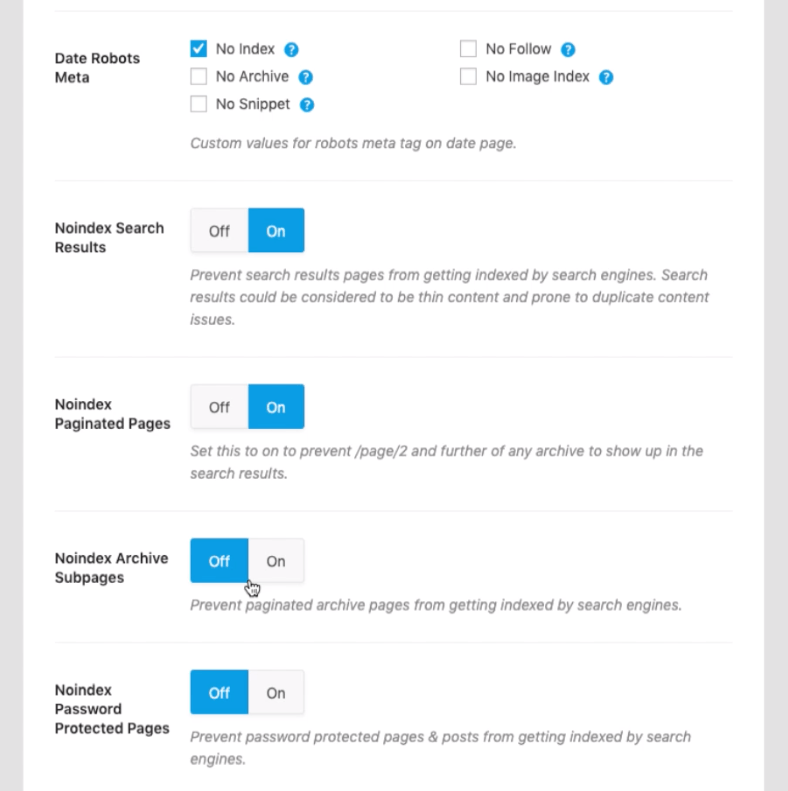
As mentioned above, one can easily customize the Meta from the meta box. The meta box also helps customize the social media open graphs and add the robot information for search engines whether to index or noindex the page.
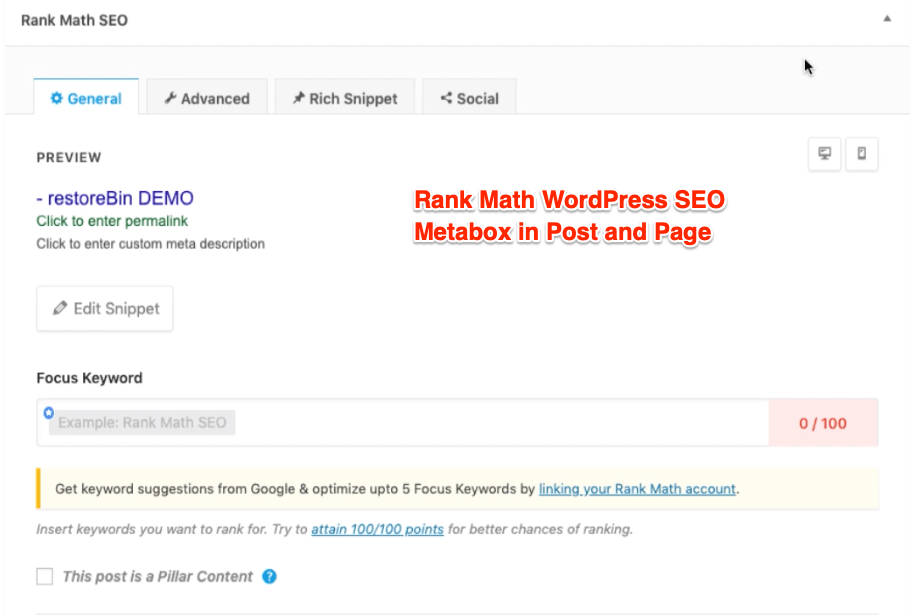
Rank Math can customize the meta and title at every scale. You can carefully review each aspect and set it for the best usability and SEO ranking.
My SEO setting is demoed in the below video; please watch the Rank Math plugin settings video tutorial.
XML Sitemap Settings
Like every WordPress SEO plugin, the XML sitemap is a valuable feature in Rank Math. This helps generate the XML file of the entire WordPress blogs and pages, along with updating the frequency and number of images.
Google and Bing search engine bots read this XML file to understand how the website is structured and how frequently the site is updated. This XML file is also used for indexing (and caching) the website content.
We need to enable the XML sitemap option and submit it in Google Search Console and Bing Webmaster Tools.
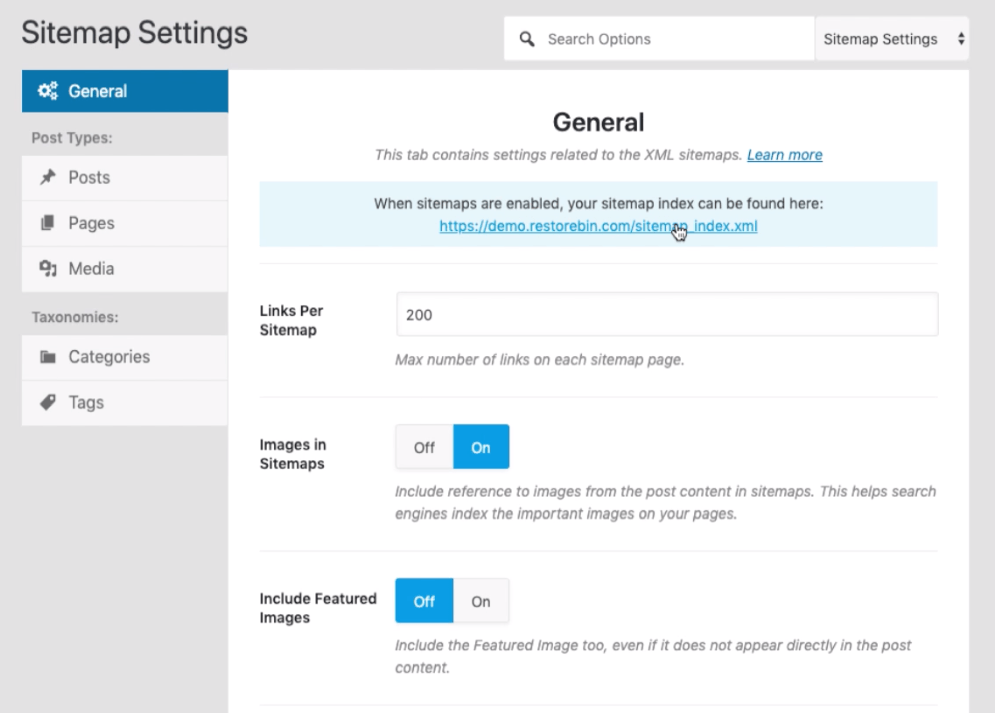
You can even customize what all links need to be submitted for indexing. I exclude the archives, categories, tags, and other page types that will create duplications. Here is the XML sitemap for my restoreBin.com Blog:
https://wpaq.com/sitemap_index.xml
You don’t need to generate the XML sitemap every time; it’s just a one-time step and submission to search engines via the webmaster tools.
Fixing 404 Not Found error for XML Sitemap:
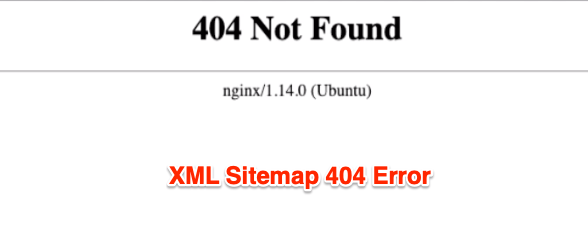
If you’ve followed my guide on Nginx Security, you may face a 404 error issue when accessing XML Sitemap. You can add the below line of snippet code inside the server block of the nginx configuration file.
# Rewrites for 404 Errors with XML Sitemap rewrite ^/sitemap_index.xml$ /index.php?sitemap=1 last; rewrite ^/([^/]+?)-sitemap([0-9]+)?.xml$ /index.php?sitemap=$1&sitemap_n=$2 last;
It will help eliminate the error and allow access to the XML sitemap file while keeping the Nginx Security tight.
404 Monitor & Redirection
The 404 Monitor and URL Redirection feature is an excellent addon to this free plugin. The 404 monitors and logs all the broken links on the site, which we may revisit now and then.
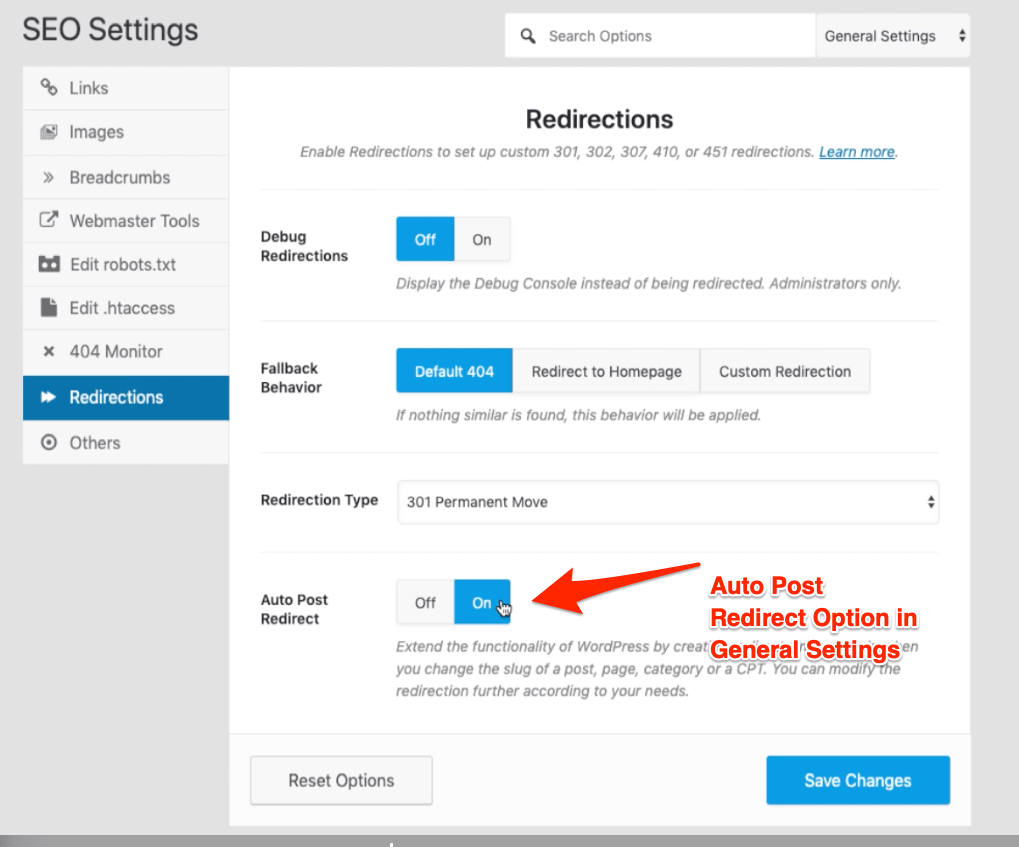
If there is any broken 404 link that is frequently visited, we can either recreate the broken link as a post or page. OR we may consider redirecting to the relevant post on our WordPress blog.
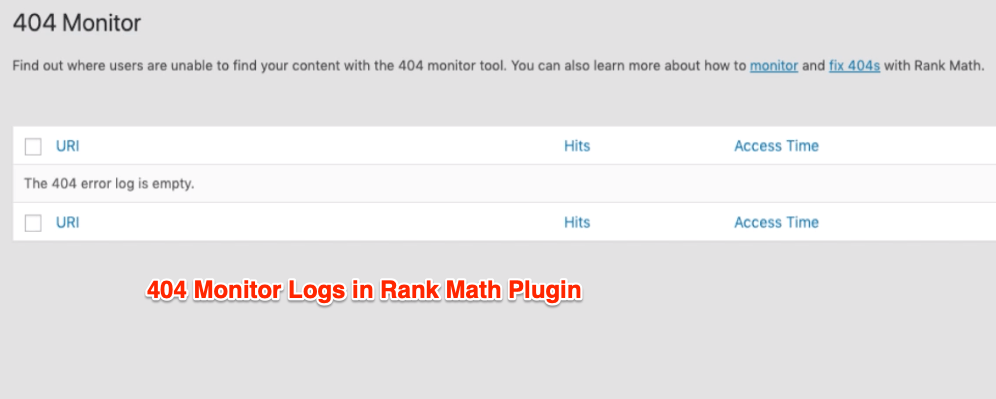
The Rank Math has a Smart Redirection feature that automatically adds the URL redirection if we change the URL of the post. We can even adjust the auto-added redirection per our needs.
Redirection and 404 Monitor display the hits to the broken URL and when it was accessed last time. These two addons are extremely helpful and avoid using any additional plugin load for similar features.

Site-wide SEO Analysis
The Site-wide SEO Analysis displays the entire website’s SEO status, which has been tested with 70+ ranking parameters. The Analysis report shows the areas of improvement and the parameters that have passed the test.
However, you need to register an account with the Rank Math website to get the Site-wide SEO Analysis to work and display the result. Creating the Rank Math account is free using an Email ID or SSO sign-in with Google or Facebook. Once you register the account, enter login details to authorize the Rank Math plugin.
On complete authorization, you’ll be able to run the Site-wide SEO Analysis and get the report based on current WordPress SEO settings along with the areas of improvement on the page.
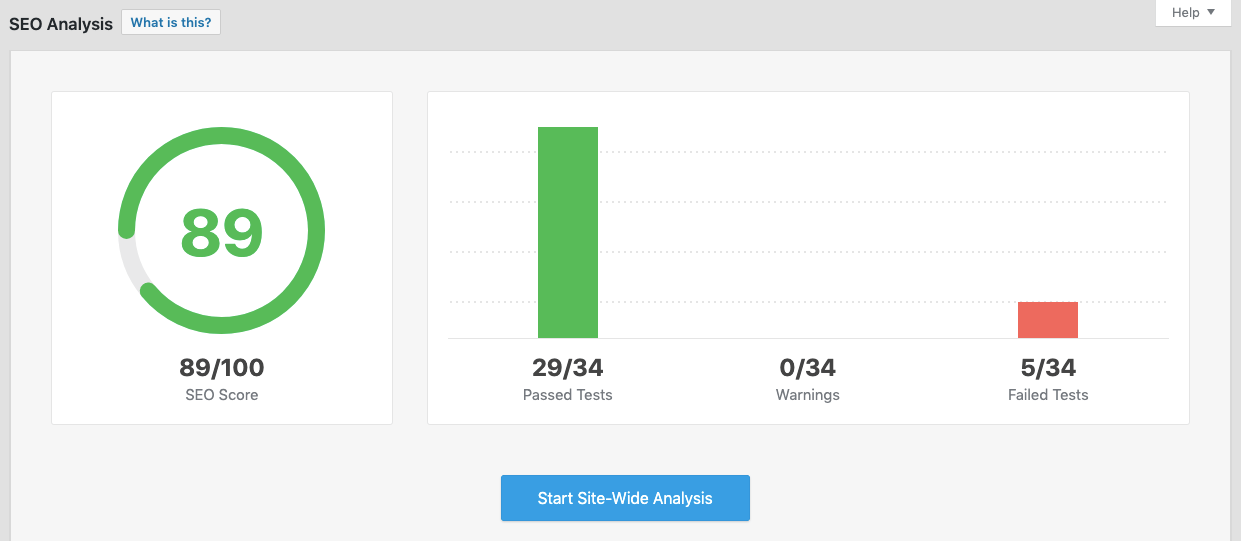
This report is beneficial for anyone who is starting with SEO.
Watch WordPress SEO: Rank Math Setup Tutorial
Watch the complete step-by-step setup of the Rank Math plugin for on-page WordPress SEO. The plugin is also added with premium features like redirection, 404 monitors, and integration with the Google Search Console to display keyword data.
I hope you liked the video tutorial. Please subscribe to our YouTube channel for more videos.
What’s next in the #WordPressBlog Series?
Now that we completed the WordPress SEO settings with the Rank Math plugin.
Next, we will learn to set up the remote backup of the entire WordPress in our online storage sites like Google Drive, Dropbox, OneDrive, or Amazon. This remote backup is essential to keep our entire site data off-site and recover the site if anything goes wrong.


Make a post on how to secure content from theft..like securing rss feed via apache htaccess..content theft got me headache